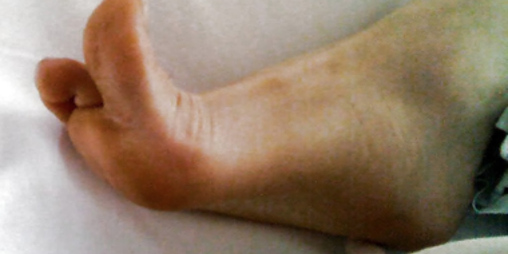Signs of Upper and Lower Motor Neuron Lesions


Every movement we make is caused by the contraction of different muscles, which are themselves controlled by the neurons that innervate them. However, one long nerve fiber does not run from the brain all the way down the spinal cord to reach our muscles. Instead, our bodies use a two-neuron system.
After listening to this AudioBrick, you should be able to:
- Briefly compare and contrast upper vs lower motor neuron lesions and the general approach to diagnosing each.
- Define and describe spasticity and clonus and their common causes.
- Define and describe hyperreflexia and its common causes.
- Define and describe fasciculations and fibrillations and their common causes.
- Define and describe a positive Babinski sign, and indicate the importance of its clinical finding.
You can also check out the original brick from our Neurology and Special Senses collection, which is available for free.
Learn more about Rx Bricks by signing up for a free USMLE-Rx account: www.usmle-rx.com
You will get 5 days of full access to our Rx360+ program, including nearly 800 Rx Bricks. After the 5-day period, you will still be able to access over 150 free bricks, including the entire collections for General Microbiology and Cellular and Molecular Biology.
***
If you enjoyed this episode, we’d love for you to leave a review on Apple Podcasts. It helps with our visibility, and the more med students (or future med students) listen to the podcast, the more we can provide to the future physicians of the world.
Follow USMLE-Rx at:
Facebook: www.facebook.com/usmlerx
Blog: www.firstaidteam.com
Twitter: https://twitter.com/firstaidteam
Instagram: https://www.instagram.com/firstaidteam/
YouTube: www.youtube.com/USMLERX
Learn how you can access over 150 of our bricks for FREE: https://usmlerx.wpengine.com/free-bricks/
from our Musculoskeletal, Skin, and Connective Tissue collection, which is available for free.
Learn more about Rx Bricks by signing up for a free USMLE-Rx account: www.usmle-rx.com
You will get 5 days of full access to our Rx360+ program, including nearly 800 Rx Bricks. After the 5-day period, you will still be able to access over 150 free bricks, including the entire collections for General Microbiology and Cellular and Molecular Biology.
